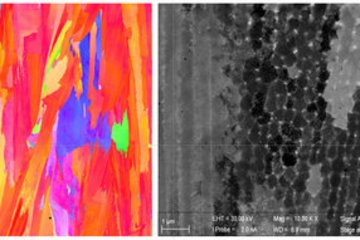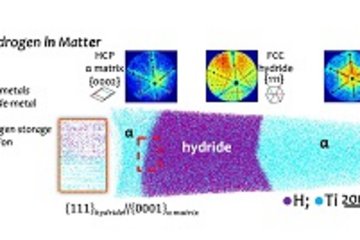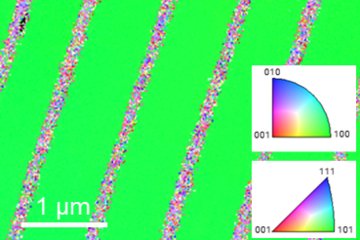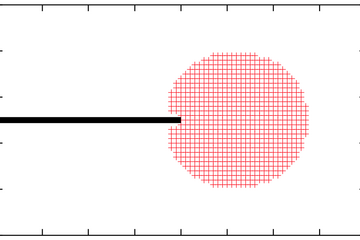All genres
1.
Journal Article
Microscale deformation of an intermetallic-metal interface in bi-layered film under shear loading. Scripta Materialia 263, 116665 (2025)
2.
Journal Article
Hydrogen Permeation Barrier Layers for the Hydrogen Economy. Annual Review of Materials Research 55, pp. 125 - 149 (2025)
3.
Journal Article
Temperature-driven nanoscale brittle-to-ductile transition of the C15 CaAl2 Laves phase. Materials and Design 244, 113206 (2024)
4.
Journal Article
Fracture of the C15 CaAl2 Laves phase at small length scales. Journal of Materials Science 59, pp. 12677 - 12694 (2024)
5.
Talk
Elevated temperature deformation of intermetallic phases in Mg–Al–Ca alloy at small length scale. International conference on creep and fracture of engineering materials and structures, Creep 2024, Bangalore, India (2024)
6.
Talk
Using in-situ nano- and micromechanical testing to probe the fracture behavior of intermetallic Laves phase materials. 7th International Indentation Workshop – IIW7, Hyderabad, India (2023)
7.
Talk
Role of temperature on micromechanical fracture behaviour of Laves phase in Mg–Al–Ca ternary alloy. FEMS EUROMAT 2023, Frankfurt, Germany (2023)
8.
Talk
Role of temperature on micromechanical fracture behavior of Laves phase in Mg–Al–Ca ternary alloy. FEMS Euromat 2023, Frankfurt am Main, Germany (2023)
9.
Talk
Microscale fracture behavior of Laves phases in the Mg–Ca–Al ternary alloy system. 86. Annual Meeting of DPG and DPG-Frühjahrstagung (DPG Spring Meeting) of the Matter and Cosmos Section (SMuK), Dresden, Germany (2023)
10.
Talk
Microscale fracture behavior of Laves phases in the Mg–Ca–Al ternary alloy system. DPG-Frühjahrstagung (DPG Spring Meeting) of the Condensed Matter Section (SKM), Dresden, Germany (2023)
11.
Poster
Investigation of Al2O3 coating deposited on Al alloy by electrochemical oxidation for hydrogen permeation barrier applications. SteelyHydrogen Conference, Ghent, Belgium (2025)
12.
Poster
Investigation of Intermetallic-Mg interface strength using in-situ microshear testing. Nanomechanical Testing in Materials Research and Development IX, Sicily, Italy (2024)
13.
Preprint
Nanoscale brittle-to-ductile transition of the C15 CaAl2 Laves phase. arXiv (2024)









